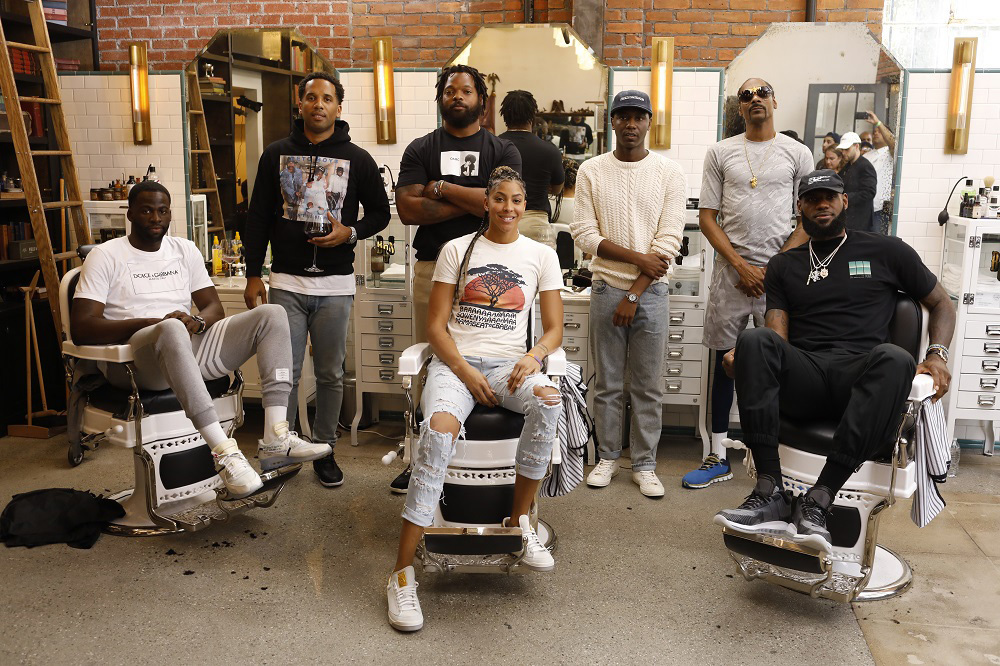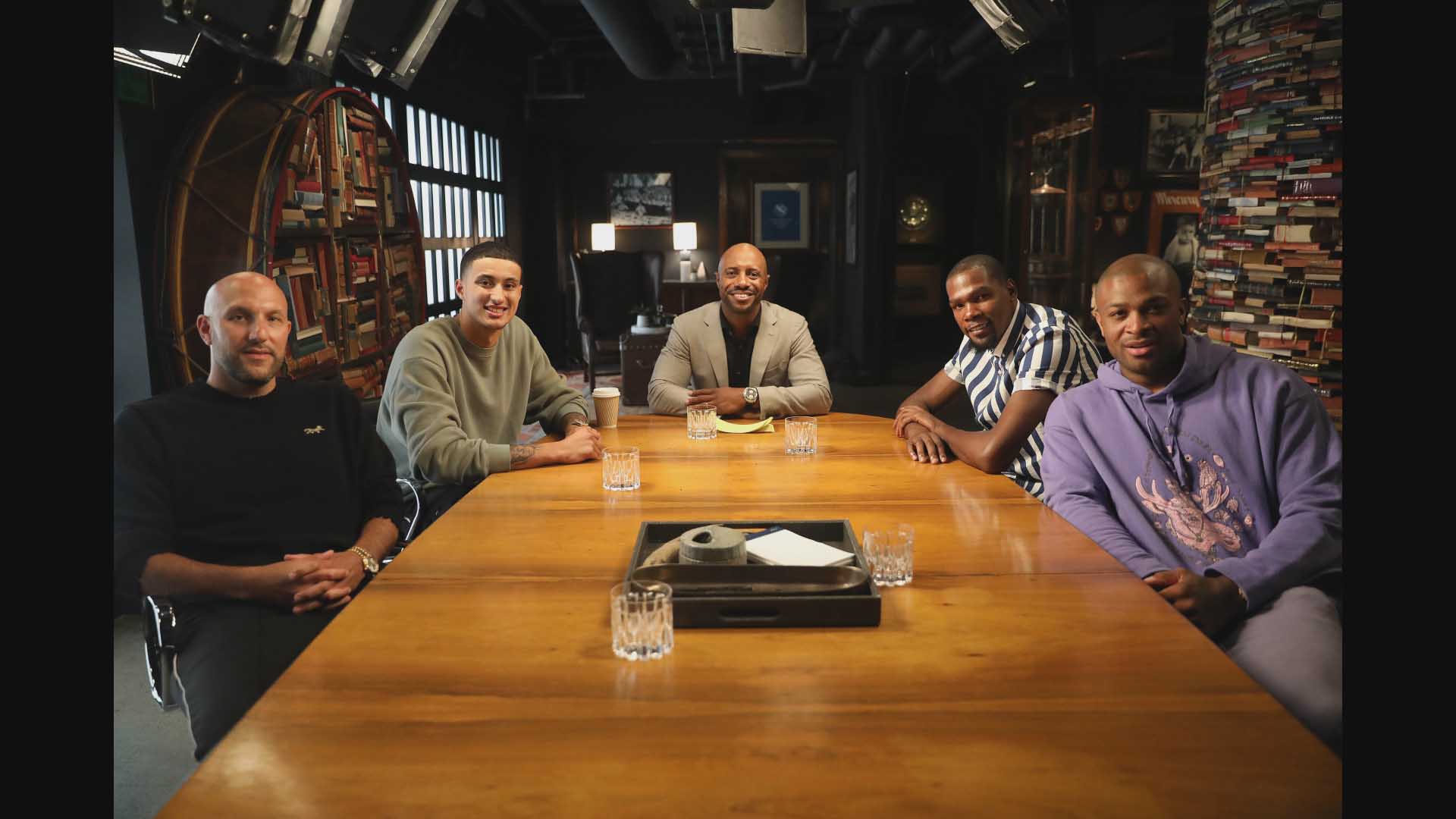Taking It to TV
The smarter way to stay on top of the multichannel video marketplace. Sign up below.
You are now subscribed
Your newsletter sign-up was successful
This past March, then-Pittsburgh Steelers wide receiver Antonio Brown appeared on HBO’s sports documentary series The Shop: Uninterrupted, where he sounded off on Steelers quarterback Ben Roethlisberger. The outspoken wide receiver took issue with Roethlisberger’s assertion in the mainstream press that Brown incorrectly ran a pass route that forced a critical interception during a late-season game.
“We lose a game … [Antonio Brown] should have run a better route,” Brown said, paraphrasing Roethlisberger’s comments. “He feels like he’s the owner … but he threw that sh-t to the [opponent’s] d-line.”

Two weeks later, Brown was traded to the Oakland Raiders. While Brown’s appearance on the show didn’t directly force the trade, the HBO show executive-produced by NBA superstar LeBron James — which takes place in a barbershop and provides celebrities with a raw, unfiltered forum to share their views on everything from game action to politics — offered a platform for Brown to express his feelings, for better or worse, regarding his relationship with the Steelers.
The Shop, now in its second season, is one of several sports documentaries and series executive-produced by pro athletes on linear channels and streaming services that provide a pro player’s unflinching perspective on issues both on and off the field — views that previously were rarely seen on the small screen.
Athletes Talk Back
“For centuries, it had been one way: the public would watch athletes perform; the press would dissect athletes’ lives; and owners would decide their fate,” said Peter Nelson, executive vice president of HBO Sports. “We are now seeing athletes taking some ownership back of their narratives.”
Indeed, athletes — who had already been utilizing social media to speak directly to fans — are now using mainstream television channels to get their messages to the public and past the echo chambers of the sports media and the leagues. And they’re not afraid to speak their minds about the state of sports or the country.
The smarter way to stay on top of the multichannel video marketplace. Sign up below.
“I don’t think we can expect that any longer sports and politics or sports and society will not intersect,” Showtime Networks president of sports and event programming Stephen Espinoza said. ”They have always intersected — maybe we have not been able to acknowledge and realize it — but I think in today’s times, they are interwoven to a point that they’re inseparable.”
Sometimes the narrative goes beyond the field. Showtime’s 2018 limited series, Shut Up and Dribble, which focuses on African-American athletes’ influence on politics and culture, served as a touchstone for the intersection of sports and politics.
In February 2018, Laura Ingraham of Fox News Channel’s The Ingraham Angle infamously chastised James for directly criticizing President Donald Trump, saying the NBA star should just “shut up and dribble” and not comment on issues off the basketball court.
James, who executive-produced the Showtime series, would end up using what was deemed as a derogatory phrase by Ingraham as the title for the series, which was narrated by controversial former ESPN personality Jemele Hill who, as a SportsCenter anchor, was suspended in 2017 for writing negative tweets about the president.
“Shut Up and Dribble felt like an answer to Laura Ingraham and her criticism of [James] when he criticized the president,” National Public Radio television critic Eric Deggans said. “Through the documentary, it allows him to speak at length about a subject that people would be interested in.”
It’s risky for athletes to inject politics into a traditional platform like sports documentaries, according to Espinoza, but in the end it provides a unique narrative that offers a perspective that’s different from anything seen on traditional news or sports news shows.
“It takes courage for LeBron and everyone who contributed to Shut Up and Dribble to address politics in a very direct and explicit way at a time in which most people are saying let’s separate sports and politics,” he said. “It takes courage to dive deeper into that topic when everyone else is shying away from it.”
Docuseries such as The Shop and Shut Up and Dribble are putting the athlete’s story squarely in the spotlight, according to former NBA player Jay Williams.
Putting Media Savvy to Work
“Now we have the next tier of athletes that understands how the business works,” said Williams, now a college basketball analyst for ESPN. “Athletes like [NBA superstar] Kevin Durant can say, You might not like what I say, but this is how I feel, and I want you to understand how I feel.”

Not every athlete-produced series has to play on the social commentary field to be important or informative. ESPN+’s The Boardroom, produced by Golden State Warriors star Durant’s Thirty Five Ventures and Durant’s business partner, Rich Kleiman, examines the ins and outs of the business of sports, from the sneaker business to team ownership, through conversations with athletes and sports executives.
Williams hosts the series, where prominent figures like Los Angeles Clippers owner Steve Ballmer or players such as Durant himself talk about the business of sports from the perspective of those in the trenches. ESPN+ last month renewed The Boardroom for a second season.
“We get a chance to showcase how these people have started their own business and what they think about different topics that are currently occurring culturally,” said Williams, who played for the Chicago Bulls in the early 2000s. “It’s not only about what the consumers want to see, but what they need to see. I want to see who I buy products from. Viewers want transparency.”
Showtime’s Espinoza said the appeal of these shows is driven by viewers’ desire to see and hear the authentic and transparent voice of their favorite athletes, which was initially fostered by social media.
“The ubiquity of social media has raised the bar for documentary filmmaking, because we know so much about the hour to hour lives of many athletes,” he said. “We need to look a little bit harder and push a little deeper into athletes lives or into topics they’d like to investigate because so much is available via social media.”
While social media can provide a snapshot of an athlete’s life and views on certain issues and topics, HBO’s Nelson added, the documentary format has the ability to extrapolate more information over time to provide a more complete picture.
“You never want to be duplicative of content found elsewhere,” Nelson said. “Social media gives a lens into an athlete’s world, but often is incapable of defining that world’s deeper meaning.”
Added Deggans: “The players know they have a [social media] voice. The question then becomes, what do you want to do with that voice? So it makes all kinds of sense to try to leverage that media footprint they have to try to produce content.”
Controlling the Message
With more athletes looking to serve as executive producer for their own documentaries — Showtime is teaming with former Los Angeles Lakers player Metta World Peace, formerly known as Ron Artest, this month on a documentary chronicling his successful and controversial pro career — it will be virtually impossible to go back to a time when the leagues or the networks fully controlled the narrative of sports documentaries.
“Gone are the days when an athlete was just an athlete,” Espinoza said. “Once athletes are able to discuss issues ranging from amateurism to race to politics to ownership to diversity in the front office, all of these topics are going to continue to be unavoidable.
“I don’t think the industry has the luxury of burying their heads in the sand on the intersection between sports and every other element of our society,” Espinoza said.
R. Thomas Umstead serves as senior content producer, programming for Multichannel News, Broadcasting + Cable and Next TV. During his more than 30-year career as a print and online journalist, Umstead has written articles on a variety of subjects ranging from TV technology, marketing and sports production to content distribution and development. He has provided expert commentary on television issues and trends for such TV, print, radio and streaming outlets as Fox News, CNBC, the Today show, USA Today, The New York Times and National Public Radio. Umstead has also filmed, produced and edited more than 100 original video interviews, profiles and news reports featuring key cable television executives as well as entertainers and celebrity personalities.

